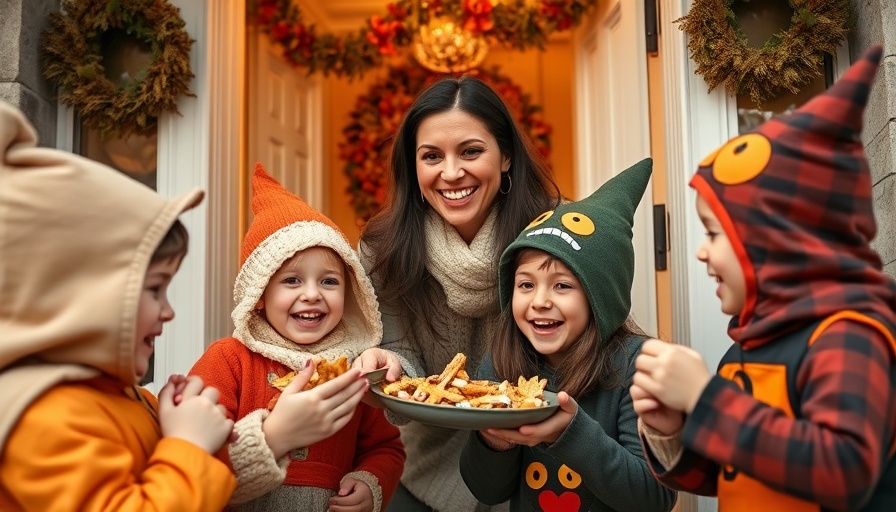
Choosing Sustainable Treats for Halloween
As the spooky season descends upon us, many of us are left wondering how to celebrate Halloween without leaving a negative trace on our planet. For boutique hospitality professionals and eco-conscious lodging owners, this is the perfect opportunity to think about the impact of our holiday choices. With childhood obesity rates on the rise and child labor prevalent in the cocoa industry, particularly in regions like Côte d'Ivoire and Ghana, it's essential to consider how our treat options affect not only our health but also the global community and environment.
Understanding the Candy Dilemma
The dilemma lies in the candy options presented to kids during Halloween—a delightful tradition fraught with ethical concerns. An alarming one in five U.S. children are classified as obese, and the candy we hand out can exacerbate this issue. Meanwhile, chocolate production contributes to child labor because many of the major brands rank poorly in corporate social responsibility. For instance, although a brand like Mars is noted for its sustainability efforts, child labor persists on cocoa farms used for its products. Understanding this, one can't help but feel a bit spooked while contemplating the contents of their Halloween stash.
Eco-Friendly Alternatives
Fortunately, not all candy has to come in environmentally destructive packaging. Eco-friendly options have emerged, focusing on sourcing organic ingredients and practicing fair trade. Brands like Equal Exchange offer individually wrapped organic chocolates, and YumEarth provides allergy-friendly sweets free from harmful ingredients. These companies prioritize ethical practices ensuring farmers receive fair compensation while also protecting the environment.
Homemade Treats: A Sweet Alternative
Despite common fears regarding homemade treats, they can play a central role in supporting community and health during Halloween. According to the FDA, while they warn against homemade snacks, there's little evidence to affirm the risks associated with them. Homemade candies not only allow for a guilt-free indulgence, but also foster a connection within the community. Wrap treats in biodegradable or reusable materials and include an ingredient list to assure parents of their safety. These thoughtful gestures can build trust and strengthen community ties—plus, they reduce unnecessary waste!
Creative Non-Food Alternatives
While candy is typically the star of Halloween, consider adding non-food goodies to the mix. Small toys, stickers, or even healthy snacks can make great treats that children will still appreciate. This shift not only diverts waste from landfills but also introduces kids to the possibility of celebrating Halloween without relying solely on candy.
Community Engagement: Collaborating for Change
For boutique hospitality professionals, Halloween provides a unique opportunity to engage with your community. Host events that focus on sustainable practices, invite families to decorate eco-friendly costumes, or organize community workshops to teach children about fair trade practices. These initiatives not only promote bonding but also encourage eco-conscious habits in younger generations.
Final Thoughts: Making a Difference
This Halloween, every choice counts. By opting for sustainable candy, homemade treats, or even non-food goodies, we can celebrate in a way that respects our planet and its people. As you prepare for trick-or-treaters, remember that your decisions can contribute to a more ethical and eco-friendly celebration. So go ahead, fill those candy bowls with care, and watch as your neighborhood keeps coming back for more—because a healthy Halloween is a sweet Halloween!
 Add Row
Add Row  Add
Add 




Write A Comment